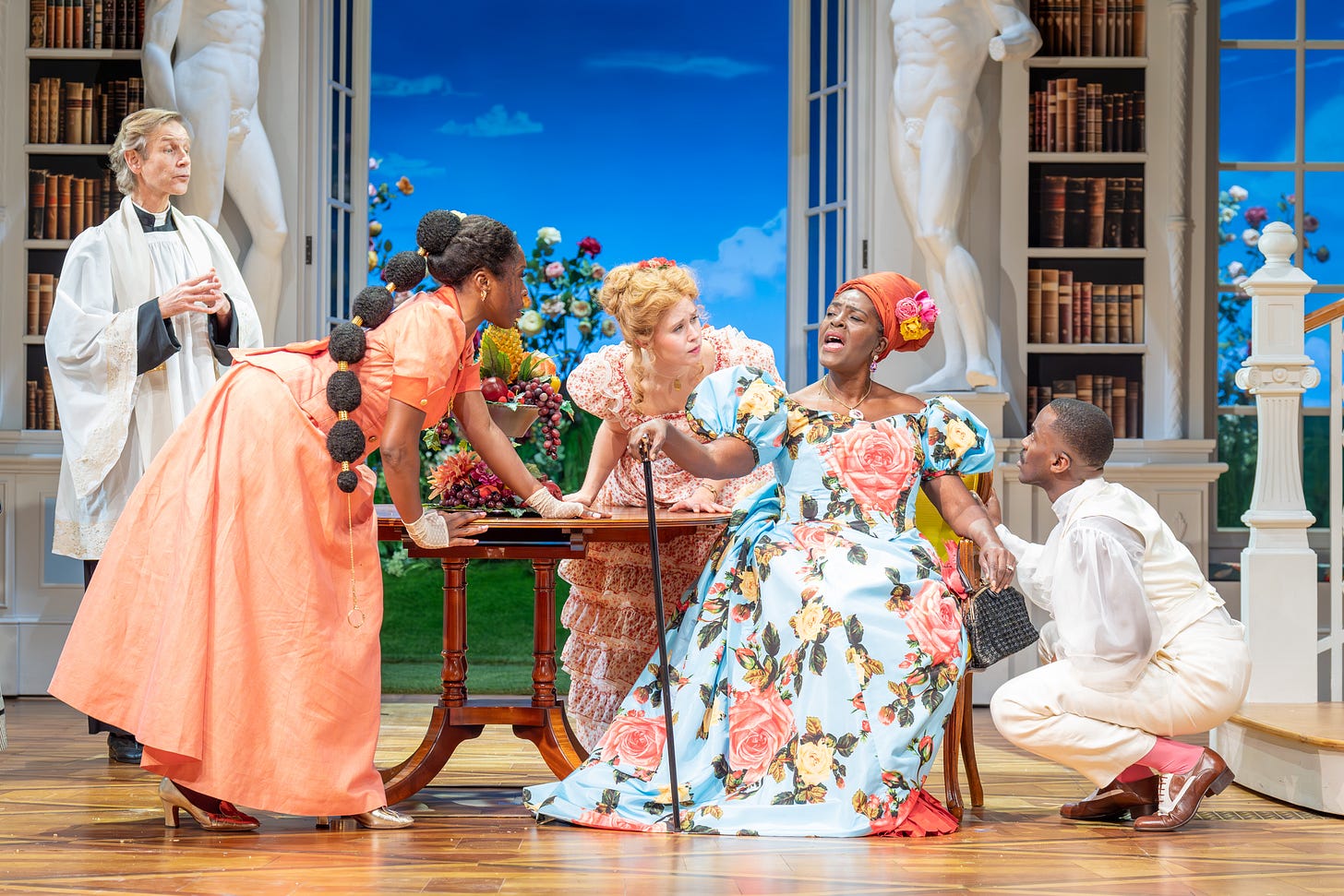Something sensational to read on the train
The most delightful Importance of Being Earnest I've seen, and other highlights

It’s my birthday this week, which actually makes almost no difference to how much I’m out in the evening (there are only so many in a week and I’ve more or less used them up already) but does make a difference to how much I’m out to lunch, so I’m going to be very efficient at getting this written NOW. It’s also going to be a little bit shorter than usual, which may be a good thing.
What I’ve seen
The National Theatre is on a major roll with its two big shows at the moment. The Importance of Being Earnest, running in the Lyttelton auditorium to January 25, is almost completely sold out but it is going to be streaming in cinemas via NT Live from February 20, and tickets are on sale now. I’d suggest booking them right away.
Listen to my and the Nicks’ review of The Importance of Being Earnest on The London Theatre Review podcast, along with a chat with Simon Russell Beale, currently playing AE Houseman in Tom Stoppard’s The Invention of Love at Hampstead Theatre, and a review of The Purists at the Kiln. You can find that and all episodes of the LTR here, or wherever you get your podcasts.
It is an out and out delight. And ‘out’ is the word - Max Webster has created the most joyously queer production of this already very queer play that I’ve ever seen.
The double life that both Hugh Skinner’s Jack Worthing and Ncuti Gatwa’s Algernon Moncrieff are living between the town (libertine) and the country (respectable) is revealed right at curtain up as a very gay old time indeed, by Gatwa appearing at a piano in a pink ballgown and opera gloves, leading a hedonistic cross-dressing party in which absolutely everyone is having a ball.
Algernon’s ‘bunburying’ (inventing a suffering friend, Bunbury, to whose side he must rush whenever he feels the need to escape boring responsibilities) suddenly takes on euphemistic nature I (naively) hadn’t grasped before, and lines like “Girls never marry the men they flirt with… It accounts for the extraordinary number of bachelors that one sees all over the place,” take on a different shade altogether.
God, this is fun. Gatwa is perfect casting, bringing something of his Sex Education character Eric to the determinedly frivolous Algernon, and Hugh Skinner, an unsung hero of floppy stage idiots, is a wonderfully exasperated Jack.
But there isn’t a weak link - Eliza Scanlen is a sparkling, borderline unhinged Cecily Cardew (the scene where she reveals to Algernon - whom she thinks is called Earnest - that she’s been writing letters to him and also writing his letters back, and that they’re engaged, is priceless) and the fabulous Ronke Adékoluéjó is one of the most deliciously vivacious Gwendolen Fairfaxes I can remember.
She’s always utterly different every time you see her on stage, and this role shows her facility for physical comedy. Her interaction with the slightly-too-steep incline of Jack’s Hampshire garden (Rae Smith’s set is fantastic - it looks great but also provides a perfect canvas for silliness) made me hoot.
Of course, though, the whole thing hinges on the fulcrum that is Gwendoline’s mother, Lady Bracknell, and Sharon D. Clarke, playing her as a Caribbean matriarch, sweeping in like the Windrush in full sail in the most spectacular frocks, is superb. The posh English aunt is rather a distant concept these days (she probably had her last hurrah in Bertie Wooster’s Aunt Agatha), but in a stroke of genius, she has been reborn on the National Theatre stage as the Caribbean Aunty - commanding, withering, opinionated, hilarious, magnificent.
Keep reading with a 7-day free trial
Subscribe to The London Culture Edit to keep reading this post and get 7 days of free access to the full post archives.




